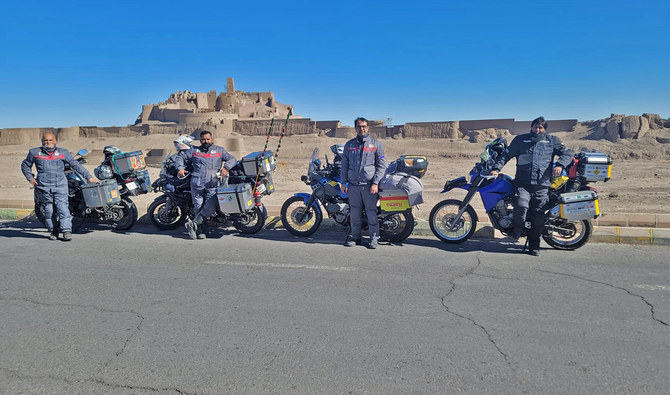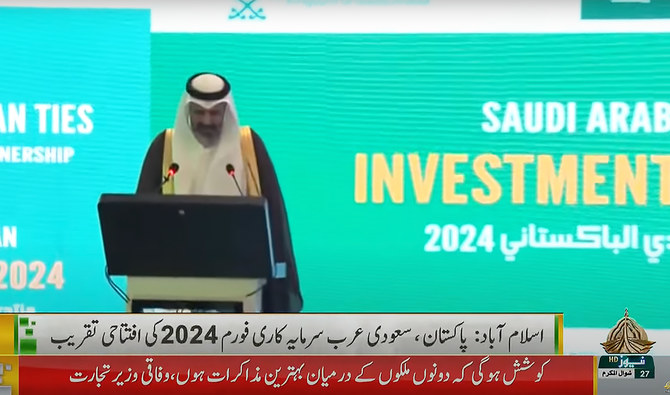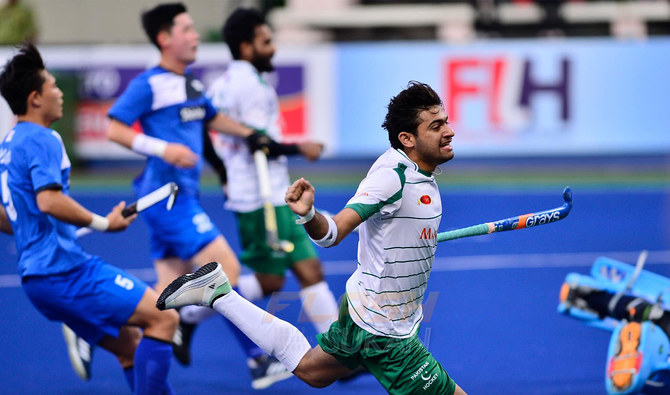ISLAMABAD: A group of 25 Pakistani bikers has reached the United Arab Emirates (UAE) on the way to Makkah to perform Umrah, the leader of the gang said on Monday, calling the motorcycle adventure a “journey of refulgence and enlightenment” undertaken to promote peace, friendship, and religious tourism.
The biker gang decided to take the trip after the Saudi government eased rules for Umrah pilgrims last year, extending the duration of visas for foreign pilgrims to three months and allowing them to use the permits to travel to cities other than just Makkah.
The group left for Saudi Arabia from Lahore on January 6 and will cover a distance of more than 14,000 kilometers to reach Islam’s holiest city. During the 60 day-long round-trip, the group will pass through Iran, the United Arab Emirates, Iraq, Jordan and Kuwait, and finally reach Saudi Arabia where the bikers will spend 19 days.
“We were planning this trip to perform Umrah by traveling to Makkah from Lahore on bikes since 2019 but due to the coronavirus pandemic our plan could not materialize,” group leader Mukaram Tareen, who is also the chairman of the Cross Route Club that organized the trip, told Arab News in a telephone interview from Sharjah.
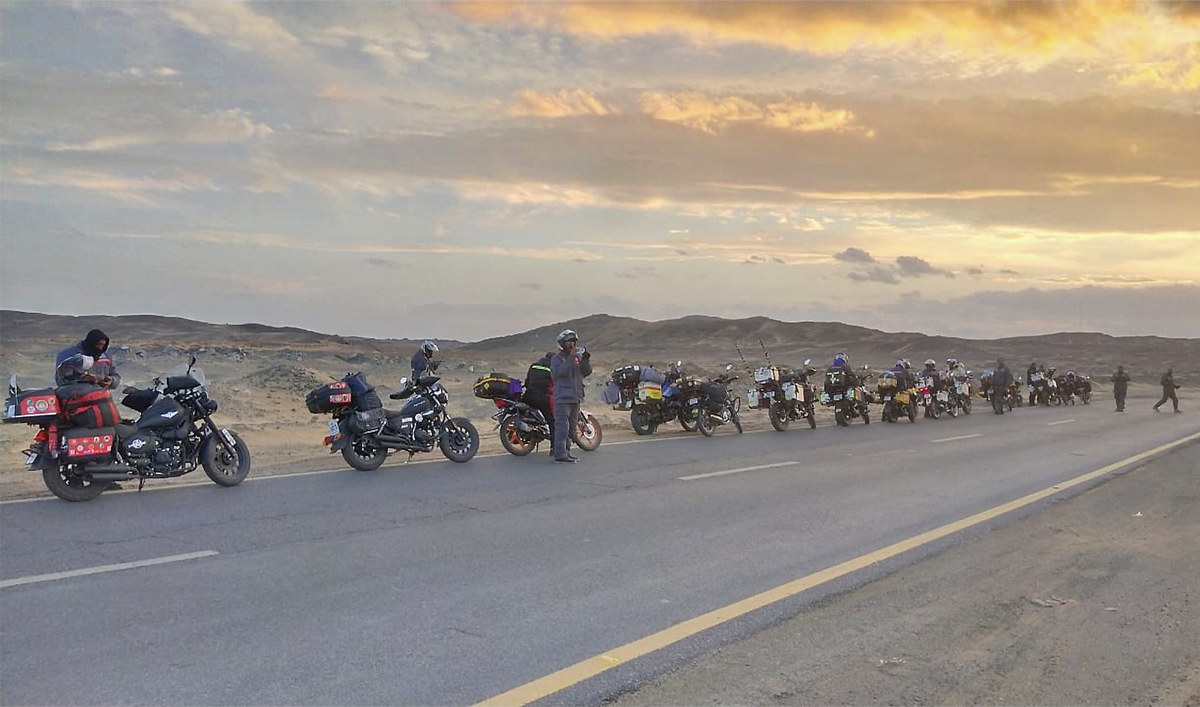
Pakistani bikers traveling to Saudi Arabia to perform Umrah are pictured near the Pakistan-Iran border at Taftan, Pakistan, on January 10, 2023. (Photo courtesy: Mukaram Tareen)
After travel opened up last year, it took five months of planning to make the trip possible, Tareen said. The journey is self-financed and will cost about one million rupees per biker.
“We have three aims during this journey of refulgence and enlightenment,” he said. “Along with performing Umrah, we want to promote peace, friendship, and religious tourism between regional countries.”
Passing through friendly Muslim countries on bikes would promote a soft image of Pakistan, the team leader added: “We will also interact with people of these countries to remove misconceptions about Pakistan.”
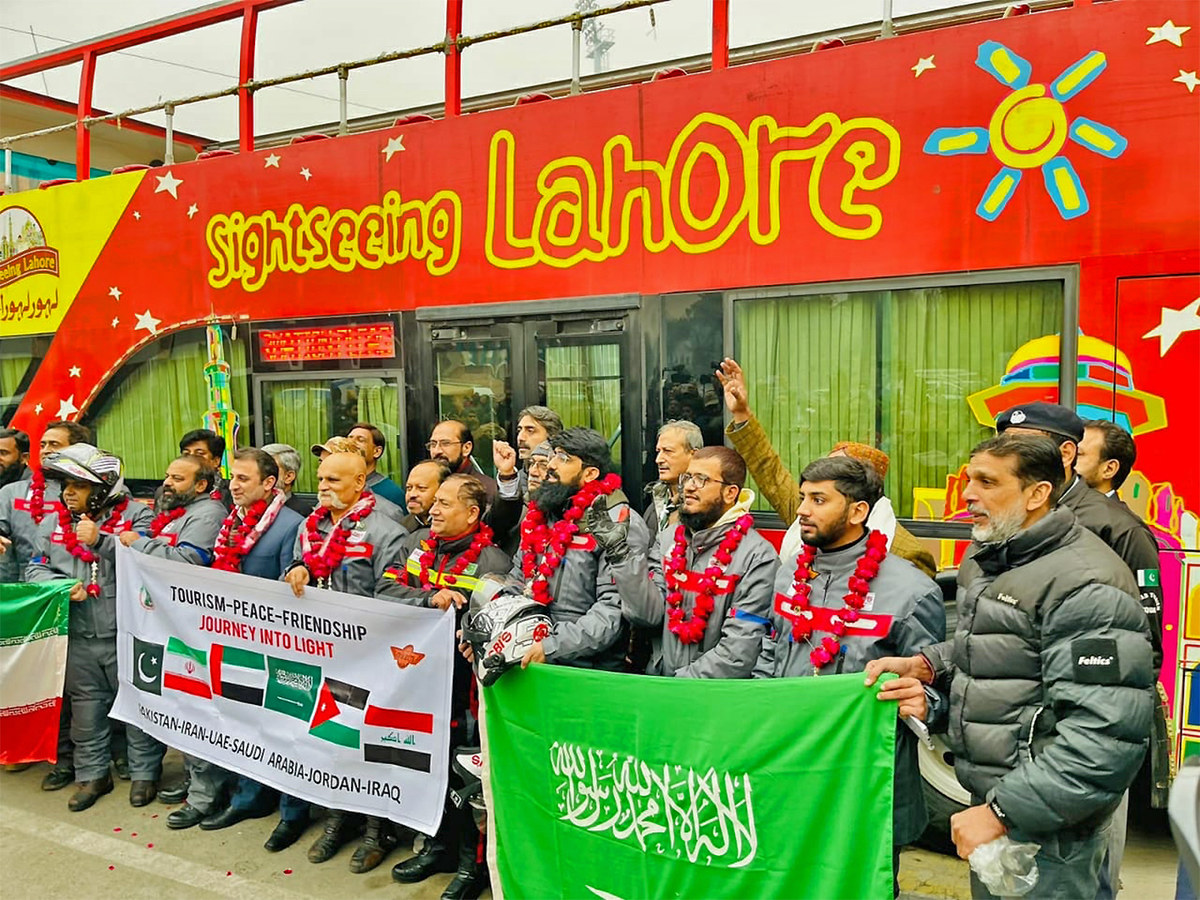
The picture taken on January 6, 2023, shows Pakistani bikers posing for a photo in Pakistan's city of Lahore as they leave for Makkah, Saudi Arabia, to perform Umrah. ( Photo courtesy: Usman Qureshi from Punjab Tourism Department)
“We reached Sharjah, UAE, on Sunday and after spending a week in different Emirates including Sharjah, Dubai, and Abu Dhabi, we will enter Saudi Arabia on January 22 via the Al Bataha border,” Tareen said.
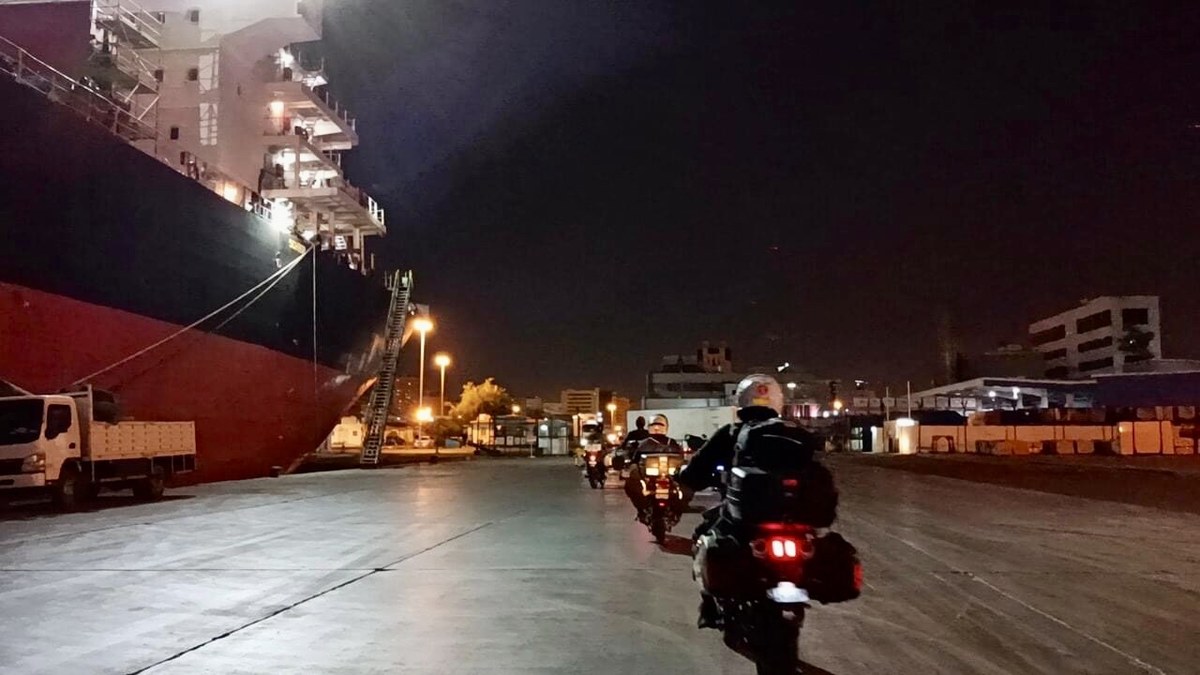
A group of Pakistani bikers are pictured as they enter Sharjah, the United Arab Emirates, on January 15, 2023. (Photo courtesy: Mukaram Tareen)
The group intends to visit tourist sites in the kingdom to promote tourism opportunities in Saudi Arabia, a main pillar of Saudi prime minister and crown Prince Muhammad bin Salman’s Vision 2030.
“We will visit Riyadh, Al-Rawdah, Taif, Makkah, Medina, Duba, Tabuk, and different places on the coastal highway,” Tareen added.
Another group member, Jahangir Khan from Gujranwala, said it had been his “dream” to travel to Makkah on a motorbike to perform Umrah.
“I have been part of this bikers club for the last seven years and it was always my dream to go on this Safar-e-Noor (journey of light), which is coming true now,” he told Arab News. “We will also visit different religious places on our route, especially in Saudi Arabia and Iraq.”



